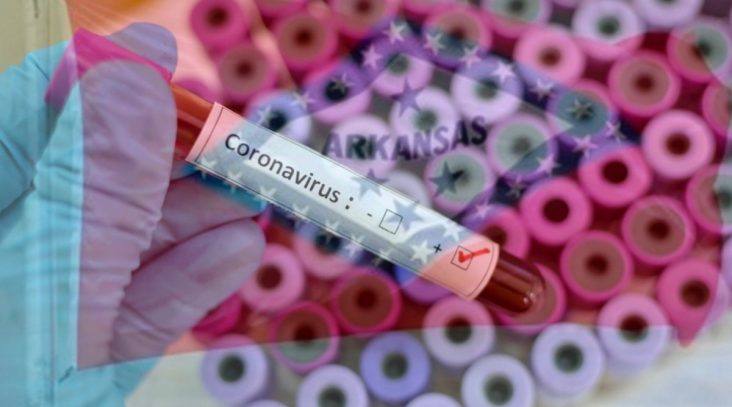State working in Jonesboro to create COVID-safe shelters
by March 29, 2020 2:14 pm 1,434 views

About 16% of the 426 Arkansans testing positive for COVID-19 are healthcare workers, Arkansas Secretary of Health Dr. Nate Smith said Sunday (March 29). He also said the state is working in Jonesboro to create safe shelters in response to the tornado that hit the city Sunday evening.
COVID-19 cases in Arkansas totaled 426 as of early afternoon Sunday, up from 404 on Saturday. The number of deaths rose from five to six on Sunday. The number of COVID patients hospitalized in Arkansas was 43 on Sunday, down from 48 on Saturday. As of Sunday at 1 p.m., there were 132,637 U.S. cases and 2,197 deaths. Globally, there were 704,095 cases and 32,137 deaths.
Gov. Asa Hutchinson, who was set to leave Sunday’s press conference and travel to Jonesboro to tour the tornado damage, said he is encouraged Arkansas is not accelerating with positive cases as fast as other parts of the country. He said that could be a sign social distancing rules are working.
The governor also thanked Lowell-based J.B. Hunt Transport Services and Memphis-based FedEx for helping the state obtain supplies of personal protective equipment from overseas sources. He also teased about possible good news about receiving more testing supplies. On Saturday, he expressed frustration that the supply chain is backed up and key ingredients in the testing process aren’t readily available.
“I hope to have some good news to announce tomorrow with testing, so stay tuned,” he said Sunday.
Smith said Arkansas Department of Health officials are in Jonesboro to help set up shelters that are safe in this COVID-19 environment. Although few are yet using the shelters, Smith said, they are screening people who enter by asking about travel history and taking temperature checks, and creating a place in the shelter for those who need to be separate from the general population.
Smith also provided the following data on the positive COVID-19 cases in Arkansas.
• 15 are age 18 or under; 135 are age 65 or older; and 276 are ages 19 to 64
• 43 are in nursing homes
• 16 are on ventilators
• 67 are healthcare workers
• As to those with other conditions, 6 are pregnant women; 36 have diabetes, 32 have heart disease, 21 have a chronic lung disease, 10 have a chronic kidney disease and 11 have various immune-compromised conditions.
